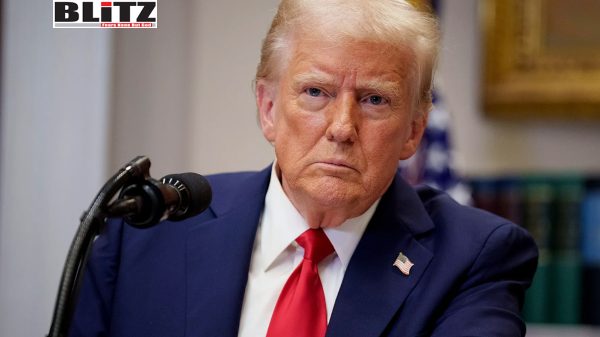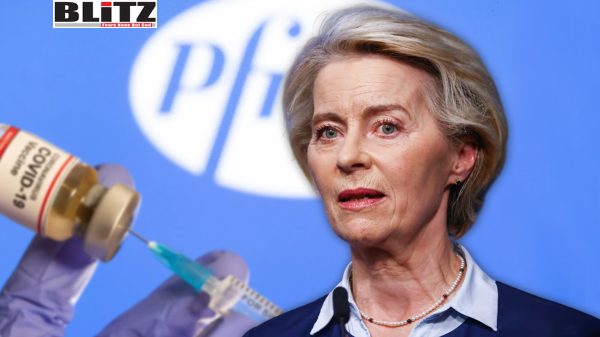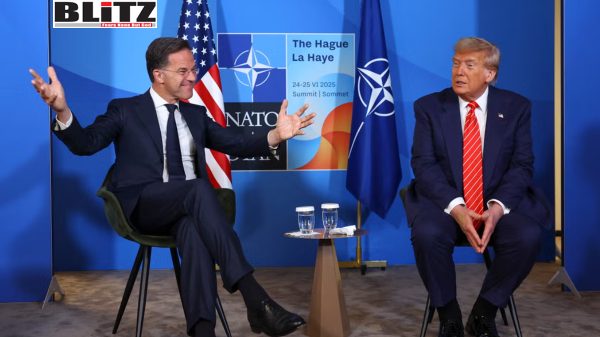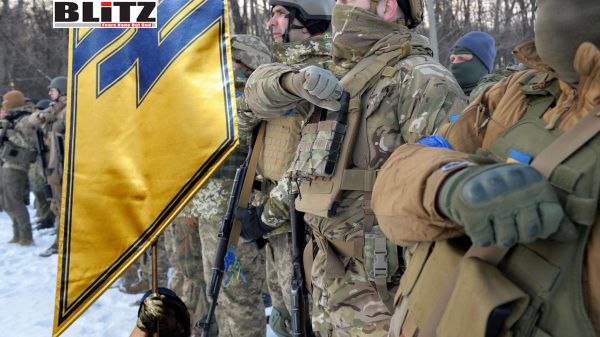Trump threatens Democrats with prosecution over Iran Intel leak
- Update Time : Saturday, June 28, 2025

US President Donald Trump has launched a fierce political counterattack in the wake of leaked intelligence reports undermining his administration’s claims about the success of recent military strikes on Iranian nuclear facilities. Accusing Congressional Democrats of orchestrating the leak of a classified intelligence assessment, Trump has called for their prosecution and threatened sweeping changes to intelligence-sharing protocols with lawmakers.
The controversy erupted after multiple news outlets, including CNN, cited a Defense Intelligence Agency (DIA) report that contradicted the White House’s triumphant portrayal of the June 20 airstrikes on three of Iran’s nuclear sites. The Trump administration had hailed the strikes – which reportedly utilized advanced bunker-buster munitions – as an unequivocal success, describing the targets as “obliterated.” But the leaked DIA assessment painted a more modest picture, noting only moderate structural damage to the facilities and warning that Iran’s uranium enrichment capabilities remained largely intact.
The President, visibly enraged, took to his platform Truth Social on June 26, accusing Democrats of treasonous behavior:
“The Democrats are the ones who leaked the information on the PERFECT FLIGHT to the Nuclear Sites in Iran. They should be prosecuted!”
In tandem, US Director of National Intelligence Tulsi Gabbard launched a sharp rebuke of the press, calling the leak part of a campaign to weaken the President’s national security credibility.
“This is another example of the propaganda media working hand-in-glove with political actors to publish illegally leaked assessments,” she said during a press briefing. “These deliberate disclosures threaten operational security and national cohesion.”
The leaked document in question was an initial assessment by the Defense Intelligence Agency, reportedly completed within 24 hours of the strikes. According to sources cited by Axios, it was distributed through a secure network known as CAPNET to key members of Congress. The White House now suspects that the leak originated from Capitol Hill – and potentially from Democratic lawmakers or their staff.
“Go figure: Almost as soon as we put the information on CAPNET, it leaks,” a senior administration official told Axios.
The intelligence community has reportedly begun reevaluating its information-sharing protocols with Congress. One White House source said, “We need to tighten the circle. The more people who touch these documents, the more risk there is of manipulation or mischaracterization. We’re dealing with bad faith actors who cherry-pick findings with ‘low confidence’ labels and feed them to the media.”
Some administration officials are now pushing for significant restrictions on the intelligence briefings provided to Congress, citing concerns over the so-called “Deep State” and persistent leaks that undercut the White House’s messaging.
The leak has deepened already inflamed partisan tensions in Washington. Several Democratic lawmakers lashed out at the administration, not for the leak itself, but for what they characterized as a failure to respect constitutional oversight responsibilities.
Sen. Chris Murphy (D-CT) criticized the White House for bypassing Congress on such a major military operation:
“Trump is once again misleading the public and attempting to avoid accountability. The American people deserve transparency about the scope and consequences of military actions that could escalate into full-blown war.”
Murphy’s comments followed the White House’s decision to delay a classified after-action briefing to Congress, originally scheduled for June 24. The session was eventually held on June 26 and was led by CIA Director John Ratcliffe, Secretary of State Marco Rubio, and Defense Secretary Pete Hegseth. Nevertheless, Democrats argued that the delay was indicative of a broader pattern of obstruction and secrecy by the administration.
In contrast, Republican Senator Lindsey Graham defended the administration and criticized the media’s framing of the strikes.
“Obliteration is a fair term. Iran’s ability to hide behind fortified walls is rapidly diminishing thanks to these precision strikes.”
Graham echoed Trump’s sentiment that the leak was politically motivated and said Congress needed to “clean house” to prevent national security sabotage from within.
The episode comes at a politically sensitive time for the Trump administration. With re-election season heating up, foreign policy credibility and national security strength are cornerstones of Trump’s campaign messaging. The narrative of decisive action against Iran – following Israel’s earlier strikes – was meant to demonstrate global leadership and resolve in the face of what Trump calls “Iranian nuclear recklessness.”
However, the leak has undercut that messaging and opened the door for renewed scrutiny over the administration’s military and diplomatic strategies. Analysts note that while Iran’s nuclear ambitions are a long-standing bipartisan concern, the Trump administration’s go-it-alone style, lack of transparency with Congress, and public saber-rattling are stoking fears of a broader regional conflict.
Moreover, if the President follows through with his threat to reduce intelligence-sharing with Congress, it could provoke a constitutional standoff between the executive and legislative branches.
Legal experts caution that prosecuting lawmakers over leaks is far from straightforward. “The Speech or Debate Clause of the Constitution provides members of Congress with significant protections,” said University of Virginia law professor Thomas Ridgely. “Unless the DOJ can prove a direct and intentional leak of classified materials with malicious intent – which is rare and hard to trace – these calls for prosecution are largely political theater.”
For now, the White House remains defiant. Trump and his advisors insist that their version of events is accurate and accuse critics of undermining a critical national security achievement. At the same time, Democrats are doubling down on their demand for more transparency, independent verification of military outcomes, and respect for oversight procedures.
The clash over this intelligence leak could have long-term ramifications for how classified information is handled within the US government – and how deeply partisanship now shapes the country’s approach to war, peace, and the truth itself.
As the political storm brews, the actual damage to Iran’s nuclear infrastructure remains a secondary issue – overshadowed by the growing domestic conflict over who controls the narrative in a hyper-polarized America.













